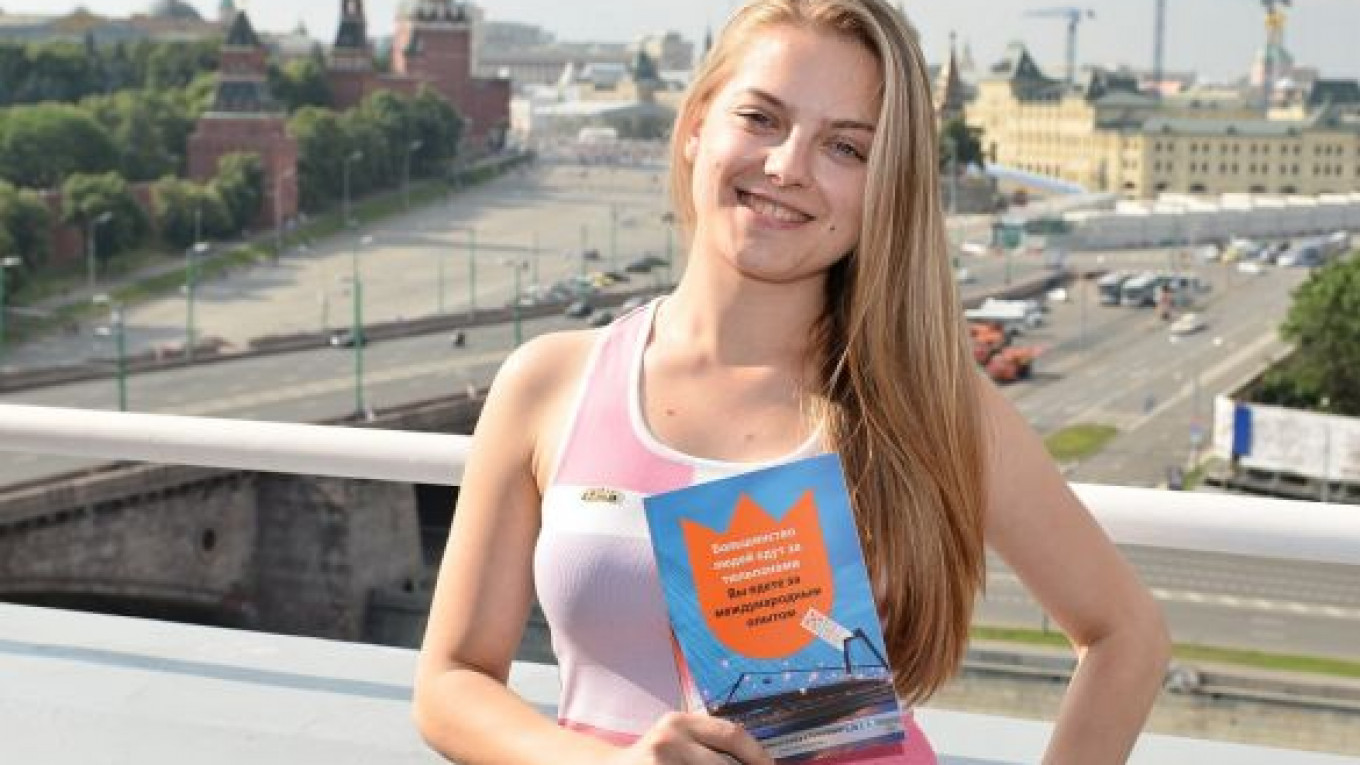Olga Lukyanova graduated from the Russian State Agrarian University in Moscow and, through the Erasmus Mondus program, won a grant to study in one of several European countries. She chose the Netherlands.
"Our university has good relations with European ones, and I had heard about Wageningen University and Research Centre. Not only is it a prestigious university but it also has good social and sports activities and an international environment." She studied a Ph.D in agricultural economics in the Netherlands from 2009 to 2010.
"I found a very supportive environment, in which people were willing to provide any information or help with housing, living conditions and letters of reference when I left."
The university was integrated into the business environment, holding meetings with companies and Dutch farmers as Lukyanova was studying agriculture. The teaching process demanded that students support their opinions with evidence, but it was not about being right or wrong. There was also a strong focus on teamwork. Once graduates move into the workplace, they are often paid to continue their research or given time and support to complete their thesis.
When she returned to Russia, Lukyanova joined the Netherlands Alumni Network in Russia, or NANR, which brings together current, former and prospective students. They have the chance to meet educational institutions and Russian and Dutch companies.
There was no such organization when Olga had left for the Netherlands, but she soon got involved upon her return and later took the post of chairlady. She makes speeches, gives presentations and represents the organization. All of these are skills that she polished in The Netherlands. NANR even organizes welcome back events for students and alumni who are returning to Russia.
NANR has a recruitment function. It keeps a database of resumes of its alumni and posts jobs on its website nanr.ru. Most alumni work in communications, management or finance. However, these jobs are easier to fill than more specific roles in medicine, architecture, research or teaching.
The organization helps companies search for people with particular technical skills and languages. Most Russian alumni of the Netherlands speak English but some also learn Dutch, and Lukyanova is continuing her PhD and Dutch language studies in Moscow.
She began working for a Russian-Dutch joint venture and later joined Peja International, which supplies machinery for animal feed and the livestock industry, and which is a representative of several Dutch manufacturers.
Asked what she had learned from working for a Dutch company, she noted that there was no big difference, socially or in status, between an employee and the head of a company, or between a student and a professor. "They are almost on an equal level, you can always ask for help. If you ask questions it means you are interested and involved. And the Dutch share their experience and opinions willingly." On a personal level, she cites time management, "Dutch people value their free time and use it properly."
In terms of higher education, Lukyanova distinguishes between research universities, which are more theoretical and train a graduate's investigational skills, and applied science courses, which focus on developing practical skills. The latter are more narrow specializations with an accent on developing professional skills and experience in a particular specialism.
Jacqueline van Marle, senior advisor of marketing & communications at The Hague University of Applied Sciences, says the university is looking for Russian partners. "We made it a requirement a few years ago that all Dutch students must learn their profession in an international setting, whether you are going to be an engineer working for an oil company or even if you plan to spend your life in the Netherlands."
It is not just about the language, she says, but about learning the profession and how to do things the international way, not just the Dutch way. "Internationalization must be built into the curriculum and not just soft skills, which can be superficial and counterproductive if you bring different nationalities together without understanding the cultural differences and skill sets. We bring students together with courses such as robotics. It is not just about how the robot works but how you are going to sell this product internationally."
Lukyanova says international study experience provides a strong advantage for Russian students, and she was hired immediately upon her return. She says employers value experience in a multicultural, international environment.
She is passionate about the Netherlands, but Lukyanova always knew that she would return home. She advises Russian students to broaden their horizons and learn in a multicultural environment but then to return and contribute to Russian society.
Contact the author at m.gay@imedia.ru
A Message from The Moscow Times:
Dear readers,
We are facing unprecedented challenges. Russia's Prosecutor General's Office has designated The Moscow Times as an "undesirable" organization, criminalizing our work and putting our staff at risk of prosecution. This follows our earlier unjust labeling as a "foreign agent."
These actions are direct attempts to silence independent journalism in Russia. The authorities claim our work "discredits the decisions of the Russian leadership." We see things differently: we strive to provide accurate, unbiased reporting on Russia.
We, the journalists of The Moscow Times, refuse to be silenced. But to continue our work, we need your help.
Your support, no matter how small, makes a world of difference. If you can, please support us monthly starting from just $2. It's quick to set up, and every contribution makes a significant impact.
By supporting The Moscow Times, you're defending open, independent journalism in the face of repression. Thank you for standing with us.
Remind me later.






